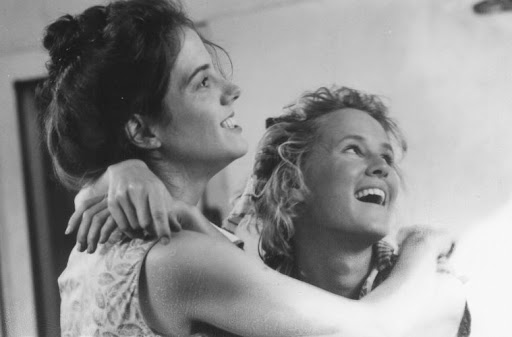
A Timeless Tale from the American South
Released in 1991, Fried Green Tomatoes stands not just as a cinematic gem but as a deeply emotional narrative that redefined the way Southern stories could be told in film. Adapted from Fannie Flagg’s novel Fried Green Tomatoes at the Whistle Stop Cafe, the movie paints a richly layered portrait of friendship, resilience, loss, and quiet rebellion in the face of social constraints. Beneath its slow, Southern charm lies a powerful current of emotional depth and cultural critique that still resonates in 2025.
Authenticity Rooted in Place and Character
One of the film’s most enduring strengths is its rootedness in Southern culture. The story oscillates between the 1920s and the 1980s, using the fictional town of Whistle Stop, Alabama, as a stage for the lives of characters who are at once ordinary and extraordinary. The rural train tracks, front porches, Sunday dinners, and community gossip feel genuine—not romanticized caricatures of Southern life.
Idgie Threadgoode (Mary Stuart Masterson) and Ruth Jamison (Mary-Louise Parker) embody contrasting yet complementary aspects of the Southern woman archetype. Idgie’s rebellious, tomboy nature and Ruth’s quiet grace form a bond that challenges social norms without ever becoming preachy. Their story is told with nuance and compassion, anchored by believable performances and a setting that’s as much a character as the women themselves.
Female Friendship as a Radical Force

Perhaps the most revolutionary aspect of Fried Green Tomatoes is its portrayal of female friendship as transformative and powerful. In a cinematic era that often reduced women to love interests or side characters, this film dared to center two women in a complex, emotionally intimate relationship.
Idgie and Ruth’s bond is portrayed with such devotion that many viewers interpret it as romantic, a perspective supported by Fannie Flagg herself. Whether one sees their connection as platonic or romantic, what remains undeniable is the depth of their love, loyalty, and shared strength. In a world that often isolates women through societal expectations, their partnership provides refuge—and ultimately survival.
Meanwhile, in the modern-day timeline, the friendship between Evelyn Couch (Kathy Bates) and Ninny Threadgoode (Jessica Tandy) offers another powerful example. Evelyn, initially a repressed and overlooked housewife, slowly regains her voice and confidence through her connection with Ninny. It’s a reminder that female mentorship and storytelling can empower across generations.
Themes of Social Justice and Quiet Resistance
Though subtle, the film is not apolitical. The story tackles racism, domestic abuse, economic hardship, and gender expectations through the everyday choices of its characters. The character Sipsey (played by Cicely Tyson) represents a Black woman surviving in a time of deep racial oppression, and though her role is limited, her quiet heroism is felt throughout.
The moral complexities in the story—especially surrounding the fate of Ruth’s abusive husband Frank Bennett—are presented without judgment. The characters operate in gray areas, acting out of love and survival, not vengeance. That nuance is rare in films of its time and still feels bold today.
A Structure That Honors Oral Tradition
Fried Green Tomatoes is a story within a story. Ninny’s tales of Whistle Stop are delivered in such a way that they become more than memories—they become mythologies that shape Evelyn’s personal evolution. This narrative layering mimics the Southern tradition of oral storytelling, where the retelling of past events becomes a form of wisdom, rebellion, and healing.
By the film’s end, we realize that stories are not just for entertainment. They are tools for transformation. They pass down courage. They make the past come alive in ways that give the present new meaning.
Timeless Performances and Lasting Legacy
Much of the film’s enduring power lies in the performances. Jessica Tandy, then in her 80s, delivers a masterclass in quiet intensity and warmth. Kathy Bates undergoes one of the most relatable and satisfying character transformations in modern cinema. Mary Stuart Masterson’s fearless portrayal of Idgie still inspires admiration for its depth and defiance. Mary-Louise Parker imbues Ruth with such subtle grace and pain that her strength becomes all the more powerful for it.
Decades later, the film is still discussed not just as a piece of entertainment but as a cultural artifact. It has inspired academic essays, LGBTQ+ readings, feminist analysis, and even culinary tourism—fans still travel to the Whistle Stop Café in Juliette, Georgia.
The Film’s Continued Relevance in 2025
In today’s media landscape, where loud and flashy often dominate, Fried Green Tomatoes reminds us of the power of stillness. It teaches that storytelling doesn’t need special effects to be magical—it needs heart. In a time where women’s stories are finally being told with more complexity, the film’s quiet feminist core feels prophetic.
Younger generations discovering the movie for the first time find it just as moving as viewers did in 1991. The themes of found family, standing up against abuse, and rediscovering one’s worth are universal. The film invites viewers to reconsider how they see others—and themselves.
Conclusion: A Southern Story for All Seasons
Fried Green Tomatoes isn’t a loud film, but it speaks volumes. It’s a film that wraps you in warmth while nudging you to think harder about friendship, love, and moral courage. It invites you to the table—not just to eat fried green tomatoes, but to listen, to share, and to pass on the stories that make us who we are.
Whether you’ve seen it once or a dozen times, this is a movie that lingers in the soul. It’s a Southern story—but it belongs to everyone.
